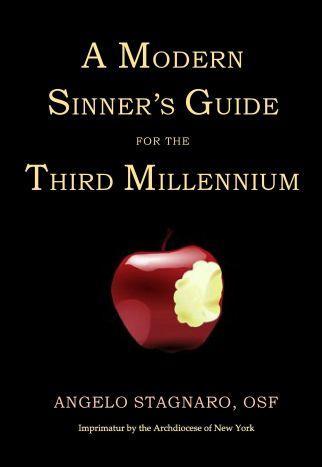 But if your eye is not sound, your whole body will be full of darkness. If then the light in you is darkness, how great is the darkness! (Mt 5:23).
But if your eye is not sound, your whole body will be full of darkness. If then the light in you is darkness, how great is the darkness! (Mt 5:23).
Ours is an age of impending darkness. The modern eye is not sound. We trumpet about freedom, but do not perceive our hidden slavery. We are comfortable but depressed; we are addicted to technology, but forget being. We think it is possible to be fully human without loving God; we think that loving God is compatible with ignoring, or even rejecting, His commandments. The sources of this darkness are legion, but a primary factor is our neglect of sin. While it is possible that previous generations were overly concerned with sin (although I doubt this is the case given their actions), that is not our problem. We have gone astray precisely because we do not think it is possible to go astray.
We alternate between incompatible claims, which undercut the possibility of sin. Often, we claim that goodness and evil cannot be true or false. Each person should be free to define for him or herself what is good and true, what lifestyle is most human and fulfilling. There is no correct answer to ethical questions. Yet, simultaneously, we claim that certain interpersonal actions can be objectively good or evil, but there are also zones of 'freedom' from truth and goodness (e.g., the bedroom, the economy, etc.). If those do not work for you, you can claim that freedom is illusory, thus sin is neurosis, genetics or social pressure.
Although we are influenced by each of these to a certain degree and they are incompatible with each other, all are incorrect. Every action is either good or evil. There is no neutrality in this world and Our Lord does not have good things to say about those who pretend there is (Rv 3:16). It does not matter if the action occurs in the bedroom, at the store, or in our innermost thoughts. It is either good or evil; it is subject to praise or blame. Sin is not neurosis, social pressure or genetically determined actions. Sin is a freely chosen bad action; an action contrary to love of God and neighbor. By every action, we either draw closer to the fullness of life or reject it.
To many of us this feels oppressive; the truth feels oppressive. Yet, to ignore it is to choose blindness and fiction, to choose a new and hidden type of slavery. Truly, truly, I say to you, everyone who commits sin is a slave to sin (Jn 8:34). Since freedom is created for goodness and truth, every sin decreases our freedom. It enslaves us to the passing things of this world and to our errant desires. If continued, sin can create a vice which enslaves us in a more total way. A vice changes the way we think and feel about certain things. By doing so, it keeps us from coming to know the truth and achieving freedom. We are no longer children of the world and of God, but children of a fantasy in which Satan rules supreme. We know not the way things are, but only our own delusions. Imagine an army denying land mines exist, while crossing a field full of them, then screaming the denial all the more shrilly when they are injured. As this army is, so are we. We are often our own worst enemies.
In an age such as ours, this book is a clarion call for the truth. "Sin exists. It is a matter of life and death that we recognize this salient fact." It is destroying our lives, our communities and our humanity. Like a worm eating an apple, it corrupts everything from the inside out. Like a cancer, it spreads. The worst thing we can do is ignore it.
A Modern Sinner's Guide for the Third Millennium by Angelo Stagnaro takes its inspiration from an important and extremely potent spiritual work by Venerable Louis of Granada (1505-1588), also titled The Sinner's Guide. Louis's book is the sinner's guide to salvation, to holiness, to fullness of life with God. It aims to guide those who are sinners to a life of holiness. The current work is a good complement for our times. We need not a sinner's guide to happiness and fulfillment, but a guide to sin: its definition, types, causes, and remedies. One cannot be healed by a doctor until the disease is admitted and this book can serve as a diagnostic manual. It discusses not only the Ten Commandments, but also the seven deadly sins, a new seven deadly sins, sins against the Holy Spirit, ultimate sins, the unforgiveable sin, and the Sacrament of Reconciliation. Given this subject matter, one might be inclined to think the book grim. However, the book is far from it. The whole point is to alert us to the types of sins so that we can work against them, both through remedies and, more importantly, through confession.
Stagnaro, a Third Order Franciscan and prolific writer, is just the person to guide others through the types of sin, their remedies, and the sacrament of confession. By his own admission, he is an expert in sinning, but also (and more importantly) repentance. He is like the man sitting by the road calling out, "Jesus Christ, Son of David, have mercy on me" (Lk 18:38), and inviting others to do so as well. This is fitting, since only Christ's light can cast out the darkness of our sins. Only His forgiveness in confession can scrape the scales from our eyes and renew our hearts. Then we shall see anew, see the world as it truly is, and be fully alive.
John Meinert, Ph.D., Assistant Professor of Theology, Franciscan Missionaries of Our Lady University.

